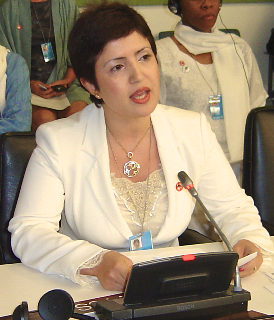A Quote by Roger Scruton
States are more like people than they are like anything else: they exist by purpose, reason, suffering, and joy. And peace between states is also like peace between people. It involves the willing renunciation of purpose, in the mutual desire not to do, but to be.
Related Quotes
The United States stands by its friends. Israel is one of its friends Peace can be based only on agreement between the parties and agreement can be achieved only through negotiations between them. The United States will not impose the terms of peace. The United States is prepared to supply military equipment necessary to support the efforts of friendly governments, like Israel's, to defend the safety of their people.
But, more than anything, in the more than three years of this Government's existence, the Israeli people has proven that it is possible to make peace, that peace opens the door to a better economy and society; that peace is not just a prayer. Peace is first of all in our prayers, but it is also the aspiration of the Jewish people, a genuine aspiration for peace.
There is no peace in Southern Africa. There is no peace because there is no justice. There can be no real peace and security until there be first justice enjoyed by all the inhabitants of that beautiful land. The Bible knows nothing about peace without justice, for that would be crying "peace, peace, where there is no peace". God's Shalom, peace, involves inevitably righteousness, justice, wholeness, fullness of life, participation in decision-making, goodness, laughter, joy, compassion, sharing and reconciliation.
The commerce of a free people is many times more valuable than that of slaves. Freemen produce and consume vastly more than slaves. They have therefore more to buy and more to sell. Hence the free states have a direct pecuniary interest in the civil freedom of all the other states. Commerce between free and slave states is not reciprocal or equal.
I think ultimately, people are selfish in that department [blues], in a good way - the reason we're attracted to art is because it somehow reflects us. And I think, ultimately, we're a tribal people by nature. We're not individualistic. We almost like to hear that there's other people in a worse state than us. Sometimes even more than we like hearing there are people in better states than us.
It turns out that the men who ultimately, who unpretentiously value peace are willing to sacrifice their own peace of mind in order to render it. The question is, 'Who, between opposing forces, would do such a thing?' It seems only theoretical albeit true that men who accept an objective rather than subjective moral standard are, in a general sense, more capable of making such sacrifices for the sake of peace.









































